 At LaunchCode, we train existing employees transitioning to Agile roles through our custom training program. One of the most common questions we get from company partners and students is what books we would recommend to students.
At LaunchCode, we train existing employees transitioning to Agile roles through our custom training program. One of the most common questions we get from company partners and students is what books we would recommend to students.
Recommended Reading:
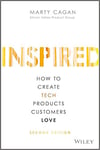 |
Inspired: How to Create Tech Products Customers Love - It’s concise and easy to read with real-world examples from Amazon, Google, and other massive tech companies. The author does a great job explaining what works while also subtly challenging conventional wisdom. Do you need product roadmaps? |
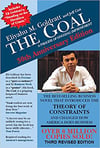 |
The Goal - Whereas Inspired provides a broad overview of product development topics, The Goal focuses on one thing - investing money to remove bottlenecks. That one thing turns out to have enormous benefits for most companies. Once you read this book, you will see value streams everywhere, and that’s a good thing. |
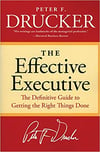 |
The Effective Executive - This book does a fantastic job of explaining why prioritizing is so important. As Peter Druker explains, “Executives are not paid for doing things they like to do. They are paid for getting the right things done.” |
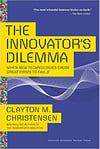 |
The Innovator’s Dilemma - Unfortunately, most people don’t do the right things. As the author points out, companies compete to solve customer problems, but employees think it’s their job to improve efficiency. As a result, new companies often enter the market and steal customers leaving established companies with massive supply chains and shrinking margins they can’t divest. Christensen’s answer to this problem was to focus on your customer’s Job to be Done. Why did the customer hire you in the first place? Great products solve their customer’s Job to Be Done better than anyone else and invest in new products and services to maintain that advantage. |
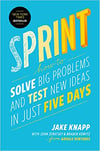 |
Sprint - Google Ventures published this book. It explains the rapid-prototyping process the organization used to launch massive companies with real-world examples. Being able to develop new products and get rapid feedback cheaply is vital for Product Owners. |
 |
Do Things That Don’t Scale - This is actually a blog post from Paul Graham, but it’s so powerful. One of the most common errors I see young product owners make is scaling everything immediately. As Graham explains brilliantly, there is no reason to scale until you know you solve a significant problem. This is worth reading solely to ask the question, are we Big Launching? Never Big Launch. It doesn’t work. |
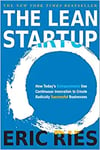 |
The Lean Startup - Students need first to understand customers and markets, then empiricism, and finally, they can learn the details of Agile. Agile without customers first and empiricism second rarely works. This book was revolutionary precisely because it explained how all these pieces work together. |
Is your business going through an Agile transformation? The importance of getting the right people into the right roles is crucial. Let our team of experts show you what we've done, and plan for your team's long-term Agile future.
